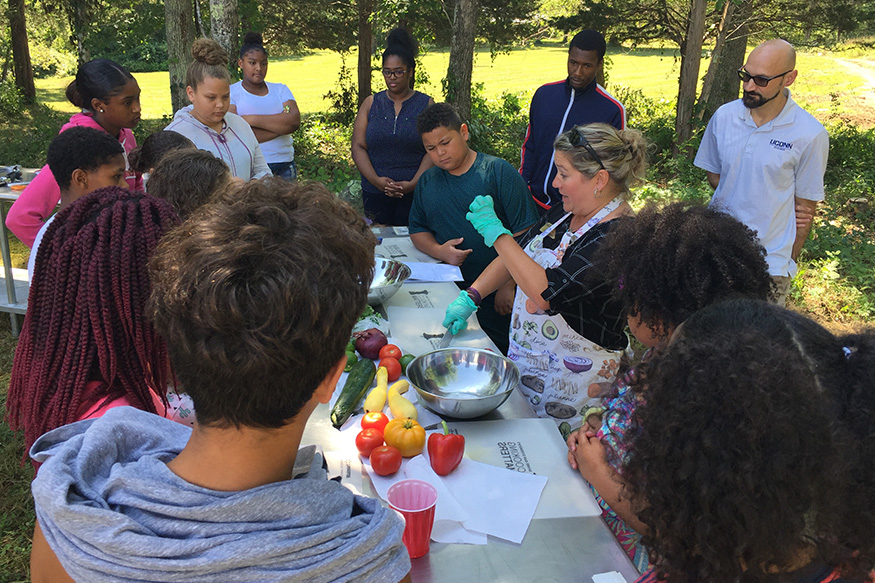Enhancing Health and Well-Being Locally, Nationally, and Globally

Examples
- A $10 million USDA Poultry Sustainability grant, the largest CAHNR has received to date is safeguarding animal, human, and environmental health. The multi-institution project led by CAHNR is Research found that older adults can lower their blood pressure by increasing their daily physical activity by 3,000 steps. This simple lifestyle intervention is as effective as structured exercise and some medications, and more easily accessed by the target population. The goal is for older adults with high blood pressure to take at least 7,000 steps daily.
- UConn’s Doctor of Physical Therapy program added mental health components to its educational and treatment programming. All students now receive Mental Health First Aid training. Students and community volunteers also offer events and health checkups on campus. Physical therapists assist patients from the community through the pro bono UConn PT C.A.R.E.S. clinic.
- Vaccines continue to proactively protect public health and that of livestock and pets. Researchers are unlocking a decades-long mystery that has prevented the development of a vaccine for walking pneumonia, a respiratory infection that can have serious health impacts on immunocompromised individuals.
- Antibiotic resistance is a challenge for humans and animals. Simultaneously, animal proteins are a popular food source, and there is a need for high-quality proteins raised without antibiotics. A CAHNR researcher filed a provisional patent for spraying chicken eggs with commercially available probiotics to promote embryonic and post-hatch growth, eliminating the need for antibiotics.
- CAHNR uses digital health methods to provide researchers with previously unseen levels of insight into behaviors that influence health. Dietary tracking, a cornerstone of weight loss interventions, is not necessary for weight loss to occur but increased tracking is associated with greater weight loss.
- Food insecurity impacts many in our state, region, and nation. Helping families learn about healthy eating, shopping on a budget, cooking, and physical activity improves knowledge and awareness of healthy choices, and food security indicators. Expanded Food and Nutrition Education Program (EFNEP) participants in UConn Extension have access to supportive discussions in six-week cohorts where they learn to prepare delicious, low-cost, healthy meals for their families.
- In the global health realm, mobile device technologies (mHealth), including apps, are used in HIV prevention efforts for disadvantaged populations. In Southeast Asian countries where sexual behaviors between men are highly stigmatized or criminalized, vulnerable individuals do not seek services through traditional healthcare avenues. CAHNR uses mHealth approaches to scale up HIV prevention approaches and provide much-needed services.